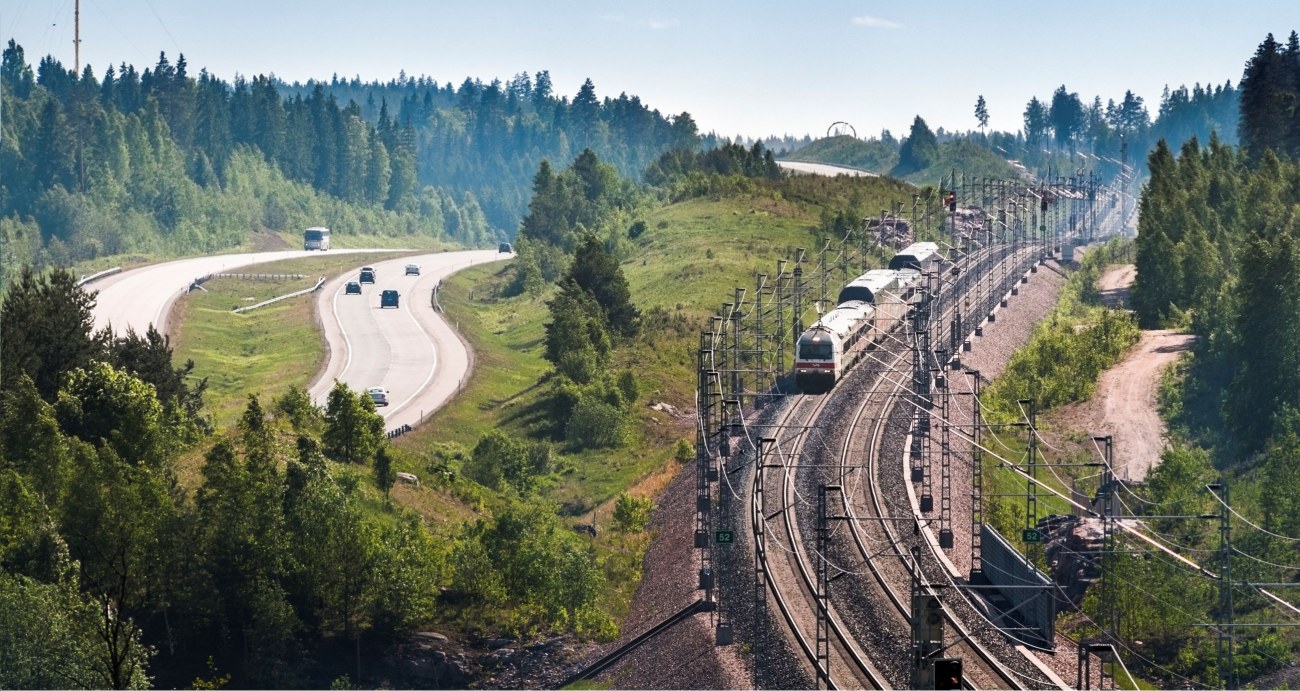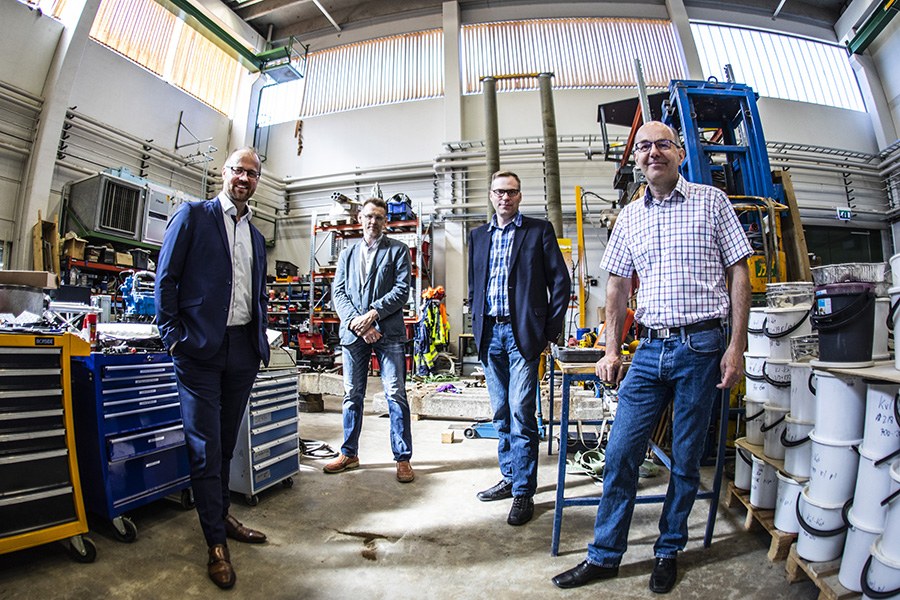
Civil Engineering

The Civil Engineering Unit conducts high-quality scientific and applied research and provides higher education in civil engineering. We foster interaction and innovation that open up new avenues for multidisciplinary education and research in our areas of expertise. We have a mission to establish a national reputation as a forerunner in educational trends and research that fall under the broad umbrella of construction and civil engineering and to raise our international profile as a sought-after collaboration partner.
News

Our research activity in civil engineering involves some 120 employees, and we carry out roughly 100 research projects and development projects on an annual basis. Our research involves a holistic approach as it integrates theory and practice and delivers impact for society.
Our research groups maintain extensive networks of contacts not only with research groups in Finland and abroad but also with stakeholders from the public and private sectors. Our staff are actively involved in drawing up norms and specifications in the field of civil engineering and serve on various standardisation bodies and committees. A large part of our research is conducted in our state-of-the-art research laboratories. In addition, our staff carry out structural and construction testing and develop, for example, civil engineering design software.
Our research centers:

Our research groups:
- Concrete and Bridge Structures Group
- Metal and Lightweight Structures Group
- Building Physics Research Group
- Construction Management and Economics Group
- Renovation and Service Life Engineering of Structures Group
- Structural Mechanics Group
- CADWES - Capacity Development in Water and Environmental Services
Research in building services engineering began in summer 2020.
The research interests of our unit fall into four broad categories:
Structural Engineering
The research interests of five of groups cover the full spectrum of structural engineering topics from construction materials to structures and their behaviour throughout their lifecycle and to planning and design. Our mission is to develop increasingly effective and ecologically sustainable solutions through an improved understanding of the behaviour of structures and construction materials. Our solutions enhance the safety and energy-efficiency of buildings, reduce our vulnerability to the harmful effects of climate change, and improve indoor air quality. Our researchers work across a wide range of areas from new builds to renovation and lifecycle engineering. We maintain an advanced research infrastructure, enabling our researchers to carry out diverse experiments and tests. Our research facilities and resources comprise a full-scale structural engineering laboratory, a fire laboratory, extreme environments laboratories, test buildings, on-site testing and testbeds as well as computational and modelling software for structural analysis purposes.
Infrastructure Construction
Research on infrastructure construction examines the development of infrastructures and building foundations. The Research Group on Earth, Foundation Engineering and Railway Structures is divided into three subgroups focusing on earth, foundation engineering and track structures, respectively. These groups carry out research to improve the lifecycle management of road, railway and foundation structures, which is an area where digitalisation opens up a world of new possibilities. The groups maintain state-of-the-art laboratories, measurement services and customised systems for monitoring the performance of structures.
Construction Management and Economics
The Construction Management and Economics Group conducts research on construction management and the sustainable development of the built environment. Our topics of interest are client-side construction management, construction operations, property development, regional development and the development of learning and work environments. Digitalisation is a cross-cutting topic in our research. The research of the Capacity Development of Water and Environmental Services (CADWES) group focuses on the ageing water infrastructure and its institutional development and resilience. In addition, CADWES hosts the UNESCO Chair in Sustainable Water Services.
Transport Research Centre Verne
Transport Research Centre Verne advances a more sustainable future transport system and logistics and educates professionals to the field. Verne’s research topics include sustainable mobility and transport, transport poverty, sustainable and efficient logistics and transport transformation. Much of Verne’s research is connected with the factors of change that affect the future of transport system, e.g. reducing the greenhouse gas emissions from transport, the effects of technological development as well as the new services and business models in transport such as Mobility as a Service, MaaS.

Degree Programme in Civil Engineering
Expertise in civil engineering is crucial for maintaining the safety, security and the environmental, social and economic sustainability of our society.
You earn a master’s degree in civil engineering by completing a three-year bachelor’s programme and a two-year master’s programme. While pursuing your bachelor’s degree, you will specialise either in building construction or in municipal engineering. As you continue your studies towards a master’s degree, you will major in structural engineering or construction management, if you chose building construction during your BSc studies. If you opted for municipal engineering, you may major either in infrastructures or in traffic and transportation systems.
Graduates with a master’s degree in civil engineering have a broad range of career opportunities. They typically go on to pursue expert or executive-level careers in Finland or abroad. Potential employers include consulting companies, manufacturers of building materials and construction products, construction companies, the traffic and logistics industry, public organisations, universities and universities of applied sciences.
A career in civil engineering requires a broad understanding of phenomena related to construction, strong problem-solving skills and the ability to develop, implement and apply new technologies.
Doctoral Programme in Built Environment
Doctoral students who complete the Doctoral Programme in Built Environment may earn the degrees of Licentiate of Science in Technology (LTech), Doctor of Science in Technology (DTech) or Doctor of Philosophy (PhD). The LTech and DTech degrees may be completed by graduates who already hold a degree in engineering. As their major, our doctoral students select either civil and infrastructure engineering or architecture and urban planning and design.
The Doctoral Programme in Built Environment provides students with the knowledge and skills to pursue high-quality research and become influential experts in their field. Doctoral education allows students to acquire more in-depth scientific knowledge and more extensive skills in research and their practical application than master's programmes. Research training, which focuses on research and its practical application, is a key element of doctoral education. High-quality research is an integral part of doctoral education and research training. Full-time doctoral students are able to complete their degree in four years.
Upon completion of the programme, our graduates typically go on to pursue academic careers in universities and research institutions or expert and management careers in the private and public sectors.

Degree Programmes in Civil Engineering
Read more about the degree programmes here.

Continuing Education in Civil Engineering
Read more about the continuing education here.

Our research groups offer a broad range of opportunities for collaboration, such as measurement, analysis and laboratory services for experimental research purposes, commissioned research services, as well as the possibility to join R&D projects and build long-term partnerships.
- Terra Laboratory Services
- Fire Laboratory
- CoreLab (Construction and Real Estate LABoratory) co-creation platform


Unit of Civil Engineering is located in Rakennustalo building on Tampere University Hervanta campus. Read more about the services on Hervanta campus and instructions for the visitors here.
Welcome to Hervanta campus!
Head of Doctoral Programme in Built Environment
Study Services
Email addressess of personnel are in the format of first name.last name [at] tuni.fi.
See other staff of Civil Engineering below.

















































